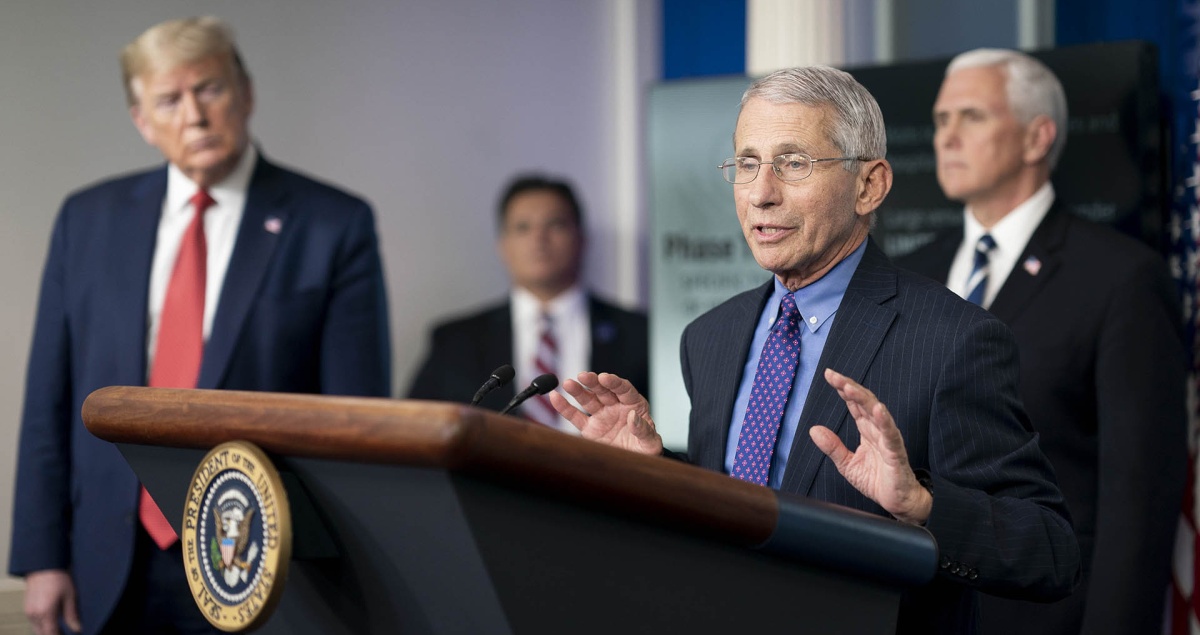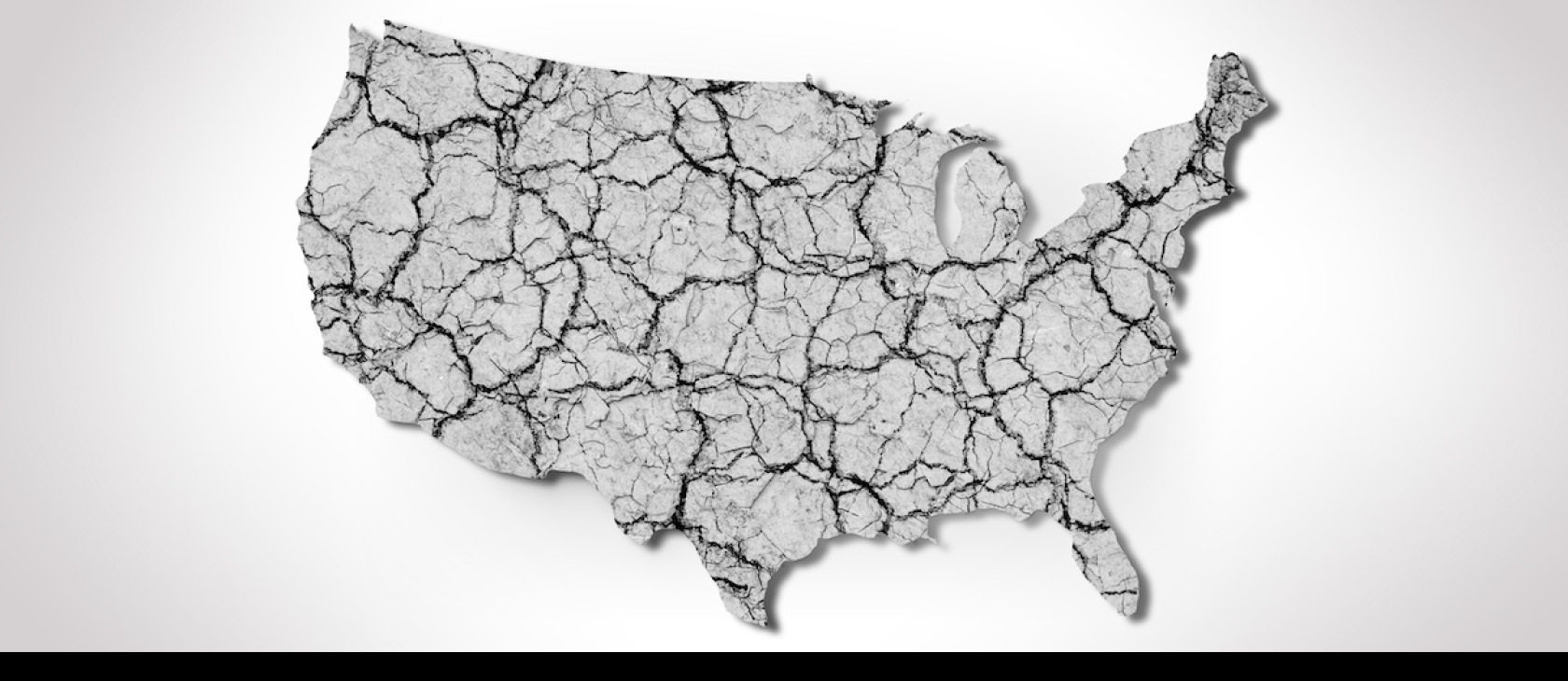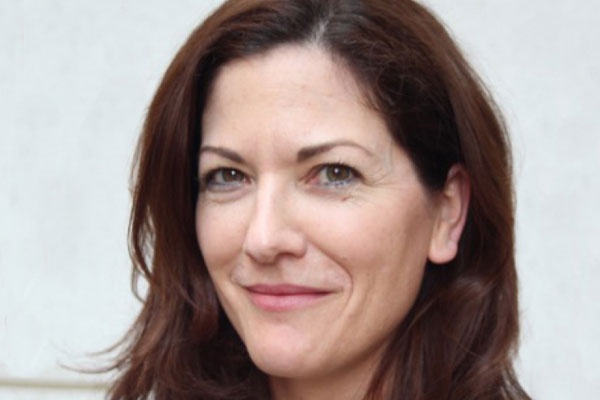What does it mean to be trustworthy? In the realm of personal relationships, most people would have little trouble answering this question. A trustworthy person is honest, steadfast, and true to his or her principles, someone on whom others know they can rely.
Distrust of elites, cultural institutions, political parties, and even our neighbors is at an all-time high. Are we fated to come apart as a nation? Or is there hope to be found right next door?
Individuals can be trustworthy or not, but experiments that test group honesty—Are Americans more honest than Finns? for example—also reveal national differences that in turn reflect whether societies might be considered high trust or low trust. In one 2013 experiment, researchers left wallets with money in them in public places in different countries, then assessed the rate of return. As The Telegraph reported, “The number of wallets returned with the money still in them varied from eleven out of twelve in Helsinki (Finland) to one out of twelve in Lisbon (Portugal).” (As it happened, the wallet in Portugal was turned in by tourists from the Netherlands, so the Portuguese rate of return was zero.) In the United States, 67% of the wallets were returned, placing us somewhat in the middle of the pack for group honesty.
In recent years, however, such concerns about group conscientiousness have given way to fears about a broader and more sustained decline of trust in the U.S. The decline is real: according to a 2023 Pew Research Center study:
Public trust in the federal government, which has been low for decades, has returned to near record lows following a modest uptick in 2020 and 2021. Currently, fewer than two-in-ten Americans say they trust the government in Washington to do what is right “just about always” (1%) or “most of the time” (15%). This is among the lowest trust measures in nearly seven decades of polling. Last year, 20% said they trusted the government just about always or most of the time.
This is reflected in other studies of Americans’ declining trust in our institutions and in each other. As Gerard Baker observed in his recent book, American Breakdown: Why We No Longer Trust Our Leaders and Institutions and How We Can Rebuild that Confidence, the Gallup organization, which has measured trust for the past 50 years, found in its most recent survey that “across nine key institutions, the average proportion of Americans who said they had ‘a great deal or quite a lot of confidence’ in them was 26%. That was the lowest number ever recorded; in the 1970s, when Gallup started measuring the number, it was close to 50%.”

As Baker noted, those institutions include the presidency, U.S. Supreme Court, media, law enforcement, and public schools, all of which Americans increasingly mistrust compared to earlier eras. He and others correctly point to the role that the leaders of these institutions played in the decline of trust, particularly elite disdain for the values and views of those who do not share their level of educational and socioeconomic success. Elite assessments of the decline of trust often point to things such as the spread of “misinformation” online or the rise of conspiratorial thinking and populism, for example, as the likely culprits responsible for the decline of trust.
But such a steep decline in trust in a relatively short span of time across multiple institutions suggests we might be viewing the issue through the wrong lens. This becomes clear when we listen to the concerns of ordinary Americans rather than the mandarins who populate our elite institutions: the story of declining trust in the United States is a story of betrayal.
An Inversion of Values
For too many Americans today, the things that used to work in society and in their individual lives now feel unstable, broken, and unreliable.
Will that bridge collapse while I’m driving over it? Will people who break the law be arrested and punished? Will my local government perform the basic services my tax dollars are supposed to be spent on, such as keeping the streets safe and clean, and schools effectively educating children? Or are local officials instead committed to progressive projects to reimagine criminal justice, education, and housing that are alien to the views of my family and harmful to our sense of well-being? Do our institutions treat us as citizens, or are we more likely to be dealt with like overly demanding customers? Can I expect the leaders of our institutions to play by the same rules I follow? What happens when they don’t? Why do an increasing number of elected officials treat me as just another of their millions of Instagram followers rather than as a concerned and informed local constituent?
Things that used to work in society and in individual lives now feel unstable, broken, and unreliable.
In more recent years, educational institutions, particularly college campuses, have birthed several generations of Americans whose views on core principles such as free speech are unrecognizable to older Americans. Indulged in the solipsistic belief that “lived experience” and “my truth” are reliable guideposts for decision-making, younger Americans view speech as violence and actual violence as speech. In addition, they have been steeped in an ideologically motivated rewriting of our country’s past and its purpose; the 1619 Project, for example, was not only a factually inaccurate effort to recast the nation’s founding as a terrible moral sin, but also a way to destabilize any remaining consensus about our Founders and our nation’s shared principles.
Upon graduation, these same students sort themselves geographically and politically, and enter elite political and cultural institutions that purport to reflect the views of all Americans while increasingly reflecting only those of their fellow wealthy, well-educated elites. This has led to a more culturally, geographically, and politically polarized population—and a growing chasm when it comes to trust.
And of course, new technologies—such as the internet, the smartphone, and social media platforms—have altered the quality and quantity of our interactions with each other, and not always for the better. Technologists have designed platforms that reward and monetize our attention, and they know that fear and anger are more powerfully motivating forces than thoughtful deliberation and compromise. An information ecosystem built on ideological and identity-based siloes, on which an increasing number of Americans of all ages spend large quantities of their time expressing their outrage about the latest, well, outrage, contributes to a feeling of fractious alienation from others with whom we disagree.
The COVID-19 pandemic cast many of these trends into high relief.
Elected representatives understand they must earn the public’s trust anew.
Writing in the New York Times about the many New Yorkers whom he had interviewed about their pandemic experiences, sociologist Eric Klinenberg noted, “The very different people I spoke with that year all had one thing in common: a feeling that in the wake of Covid, all the larger institutions they had been taught to trust had failed them. At the most precarious times in their lives, they found there was no system in place to help.”
In addition to the understandable fear and disorientation caused by the pandemic, Americans were told many “noble lies” by public health officials; they experienced a great divergence between people who could comfortably sit at home and do their jobs (usually the wealthier and better educated) and people who were still required to report to work in person—the much-praised “essential workers” in medicine, for example, and the less-feted but no less crucial service workers who earned much less—if they even had jobs to go to, that is.

Throughout the pandemic, much of the governing and cultural elite sanctimoniously scolded Americans who wanted their kids back in school and things back to normal, and actively censored those who raised questions about the origins of the virus or the claims made by public health officials. Those elites (and a mainstream media that unskeptically repeated their claims) were proved wrong about many of their dictates, such as closing schools, requiring excessive masking, and preventing religious and other civic institutions from holding services and meetings in person—and yet there has been no reckoning for their mistakes.
The political arena in which we might most effectively have that reckoning has also suffered from the current trust deficit. All politics is local, as the saying goes; today, however, too much of politics has become simultaneously national and personal, and when we treat political disagreements as both matters of national importance and personal betrayals, trust is further eroded. Today every political issue immediately becomes both tribal identifier and moral compass for many people, fueled in part by an information environment algorithmically designed to reward fear, anger, and partisanship. Trust requires time to build; contemporary culture rewards virality, not patience, and a politics that plays out on TikTok yields plenty in the way of propaganda but little in the way of persuasion. No wonder, as Pew Research found that “some 58% of adults are not confident that others can hold civil conversations with people who have different views, and 57% are not confident others will cast informed votes in elections.”
Community-Driven Hope
The current trust deficit is not without silver linings, however.
If the leaders of our institutions and our elected representatives understand that they must earn the public’s trust anew, this is not necessarily a bad thing. Reckonings at the ballot box are the best way for Americans to send a message to their country’s leaders, both at the local and national level, regardless of their partisan leanings, and in places where social breakdown reached extreme levels (such as in some high-crime blue cities), officials have faced recall votes and primary challengers who are outspoken in running against the breakdown and disorder that eroded the public’s trust.

But citizens have a role to play here, too: we should make every effort to depoliticize more of our everyday lives. That is, we must understand that in the public sphere, and in the rough and tumble of politics, compromise is necessary, and hypocrisy ever present, but that ultimately the goal is to find ways to get along, even when we do disagree. In your personal life, you might choose not to spend time with people who disagree with your views on the Second Amendment or abortion, and that is your prerogative. In a pluralistic society, however, you must peacefully coexist with those who disagree with you, even if that means that your “God Bless America” banner competes every day with your neighbor’s “In this house we believe…” lawn sign.
The media is also under pressure to reconsider its role in trust-building and trust-busting. A recent Gallup poll found that the “nearly four in 10 Americans who completely lack confidence in the media is the highest on record by one percentage point. It is 12 points higher than the 2016 reading.” Skepticism about the mainstream media, given its behavior in recent decades, is entirely warranted, but the answer to media misdeeds is not a full-scale retreat into ideological siloes. Nor should a healthy mistrust of bias in mainstream media prompt people to run headlong into the embrace of conspiratorial sensationalists. Just because CBS News is wrong about something doesn’t mean Tucker Carlson and InfoWars are always right.
Independent, fact-driven, scrappy start-ups have emerged on platforms like Substack and in podcasts to engage audiences grown weary of cynical partisan posturing on both sides; these promising shoots might one day grow high enough to replace or at least seriously challenge the old media.

Americans also need to rededicate themselves to their local communities and the people in them. We teach young children “stranger danger” to protect them from adults who might have bad intentions; but when an entire nation lives in “stranger danger” mode with their fellow citizens, healthy awareness and skepticism transforms into unhealthy paranoia and fear.
In previous eras, more Americans were active in community organizations that put them into contact with a range of their fellow citizens, and often forced them to reach agreement to solve problems. Those opportunities for in-person, collective community action have steadily disappeared in America. As Bloomberg News reported, the most recent data on community service collected by AmeriCorps and the Census Bureau found that “less than a quarter of Americans age 16 and older said they formally volunteered through an organization between September 2020 to September 2021, down from 30% in 2019 and the lowest rate recorded since the organization began the survey in 2002. The decline is prevalent across various states and demographic groups, according to the data.” Some of this decline was no doubt due to the pandemic, but the trend away from community service has been moving in the wrong direction for some time.
Like civic engagement, religious identification and attendance at religious services by Americans have declined substantially. A recent survey by the Public Religion Research Institute found that more than 25% of Americans now identify as “atheists, agnostics, or religiously unaffiliated,” which is the highest number the poll has ever recorded.
As Derek Thompson noted in The Atlantic, “No faith’s evangelism has been as successful in this century as religious skepticism.” Of course, increasing secularization does not necessarily lead to decreasing levels of trust in one’s fellow citizens, but thus far secular substitutes for communities of faith have come up wanting in measures of civic engagement. Thompson cited Pew Research Center findings that secular Americans are “less likely to volunteer, less likely to feel satisfied with their community and social life, and more likely to say they feel lonely.”
It’s a nonvirtuous circle. It’s much easier today to signal one’s political and cultural affiliations in a 10-second Instagram reel—and far more rewarding in terms of attention-seeking—than it is to show up every week to volunteer at your church’s soup kitchen. A generation raised to believe the former is more important than the latter, and that spends the bulk of its time online versus in the real world, faces significant challenges in understanding how one of these activities is a more worthwhile expression of civic engagement than the other. The impact of the internet and social media on our understanding of our fellow Americans is akin to the image a funhouse mirror offers us: a thoroughly distorted picture that exaggerates some features (anger, polarization) while downplaying others (shared values).
Top-down federal solutions are often the method of first resort when problems arise because we have allowed local institutions to wither.
Despite the rather bleak picture painted of our collective mistrust, Americans want to fix this problem. Pew Research found that 58% of Americans believe it is important to improve confidence in our fellow Americans, and 68% expressed a desire to “repair the public’s level of confidence” in government.
Conservatives would argue that one way to restore confidence in the federal government would be for Americans to remember the hard-earned lessons of previous eras of big government, and the many unintended consequences of well-intentioned, top-down policies (or, as a shorthand, President Ronald Reagan’s quip, “The nine most terrifying worlds in the English language are: I’m from the government and I’m here to help”).
Today top-down federal solutions are often the method of first resort when problems arise precisely because we have allowed local institutions to wither. Americans know this. When asked by Pew for solutions to our trust problem, respondents to the survey offered the kind of commonsense wisdom all too rarely found in our cultural and political institutions: “Neighborhoods are a key place where interpersonal trust can be rebuilt if people work together on local projects, in turn radiating trust out to other sectors of the culture.”
Politics might no longer be local, and our interactions are now more likely to occur online than in the flesh, but if we’re going to rebuild trust in one another, we must begin close to home, and face-to-face. Only then can we banish the anger, partisanship, loneliness, and anomie that too often dominate our politics. As Hannah Arendt reminded us in The Origins of Totalitarianism, it isn’t tyrants and armies that most threaten free societies. “What prepares men for totalitarian domination in the non-totalitarian world is the fact that loneliness, once a borderline experience usually suffered in certain marginal social conditions like old age, has become an everyday experience of the ever-growing masses of our century.” By building healthier communities, we dispel loneliness, diminish partisanship, and, hopefully, prepare the ground for a revival of trust.




